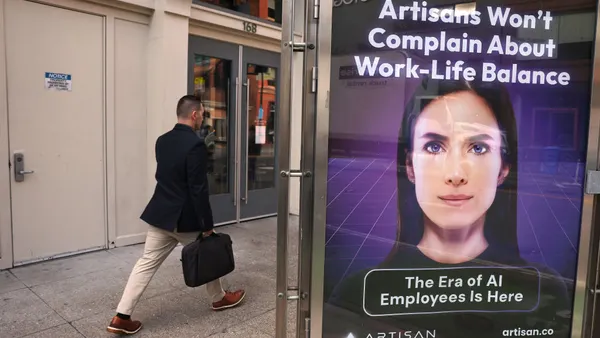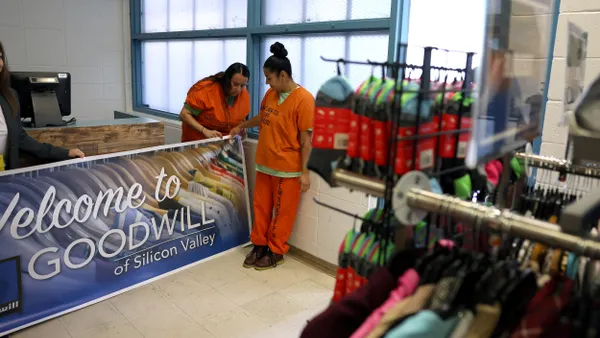Dive Brief:
- The Boys & Girls Clubs of America (BGCA) is teaming up with The Coca-Cola Company to prepare nearly 5 million youths in the U.S. for jobs of the future through sponsored learning and employment programs, according to an Aug. 31 announcement from the two entities.
- BGCA will use Coca-Cola’s investment to support "four pillars," according to the release: skill development, career exploration, credentials for employability and work-based learning opportunities.
- Programming will include writing and interview prep as well as certifications for jobs in high school and after graduation. "Amid widespread social and economic uncertainty, BGCA and The Coca-Cola Company are committed to keeping young people on track academically and engaged in building fundamental, transferable skills for success to help them become both life and workforce ready," the release said.
Dive Insight:
Despite the impact of the COVID-19 pandemic on the job market, some large corporations are re-committing to workforce readiness programs aimed at young people. JPMorgan Chase pledged $3 million to promote access to summer employment programs across 20 cities in July, a continuation of its commitment to training high school students that began in 2017. Equity also remains a key consideration for employers who invest in these programs.
"The combination of the pandemic and persistent systemic racial injustice is significantly impacting under resourced communities and especially young people," Linda M. Rodríguez, JP Morgan Chase's executive director, global philanthropy, previously said in a statement emailed to HR Dive.
Before the pandemic took hold in the U.S., PepsiCo had also launched a "work readiness skills" course aimed at teaching conflict management, communication, and critical and creative thinking, pointing to the growing interest by employers to begin outreach early.
While the pandemic has prompted the cancellation of one important arm of youth outreach for many employers — internships — employers say they remain aware that cessation of such programs could negatively impact employer brand for years to come.
"Organizations that reduce — or eliminate — their internship program may regret doing so a year or two later when they don't have a strong candidate pipeline of interns who are looking to convert into full-time roles," Cameron Jahn, director of employer product marketing at Handshake, previously told HR Dive.













